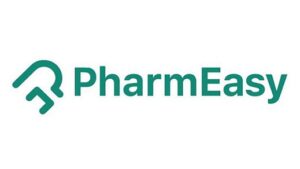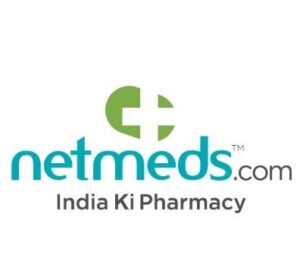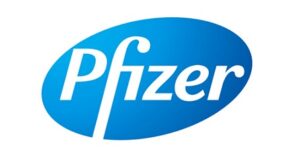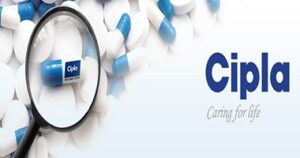Introduction
A diploma in Pharmacy is a short-term 2-year diploma programme, for those students who wish to start their pharmacy profession. Pursuing D. Pharm can be useful for understanding the principles of pharmacy.
The curriculum for the Diploma in Pharmacy includes instruction in biochemistry, pharmacology, and toxicology on both theoretical and practical level. In this course, students learn about a variety of chemical salts, their applications, brand names, interactions, cautions, side effects, and detrimental consequences. After finishing the course, students will be eligible to work as a registered chemists in India. It includes both clinical and classroom instruction.
D Pharmacy Admission is determined by a test or based on merit. Candidates must have received a minimum of 50% of the total possible points in their 10+2 exam in order to be eligible for the Diploma in Pharmacy programme. For them to enrol in the D Pharmacy programme, they must be from the Science Stream. The typical annual course cost for D Pharma is between 10,000 and 100,000 Indian rupees. Beside holding a diploma in pharmacy, it is also mandatory for person to clear the exit entrance examination.
IIMT University Meerut is the best pharmacy college in Meerut because there you will get all the facilities and guidance regarding job opportunities, placement in MNCs, entrepreneurship and business start-ups from the very first day.
- Regulatory authority for the pharmaceutical profession and education in India-
Indian Pharmacy Council– Up to graduate level, pharmacy education and practice in India are governed by Indian Pharmacy Council (PCI), a statutory body governed by the rules of the Pharmacy Act 1948, created by the Parliament.
Furthermore, it is claimed that the 388 Executive Committee of the PCI resolved to execute the Exit Examination in accordance with the “Diploma in Pharmacy Exit Examination Regulations, 2022” beginning with the 2022-2023 batch of D. Pharm Course.
- Subjects taught in D. Pharm and their importance –
There are four pillars of pharmacy; Pharmaceutics, Pharmaceutical Chemistry, Pharmacology, and Pharmacognosy. All the pharmaceutical education depend on these pillar. They can be further subdivided into various subjects, each subject in pharmacy education plays a vital role in this field.
The D Pharmacy curriculum is created to prepare the applicants to work in hospitals, neighbourhood pharmacies, and other pharmaceutically-related settings under the supervision of a licensed pharmacist.
Different disciplines in D.Pharm by which student can learn and gain knowledge includes:-
- Pharmaceutics
- Pharmaceutical chemistry
- Pharmacognosy
- Human anatomy and physiology
- Social pharmacy
- Pharmacology
- Community pharmacy and management
- Biochemistry
- Pharmacotherapeutics
- Hospital and clinical Pharmacy
- Pharmacy law and Ethics
It’s crucial to grasp your topic thoroughly and how the theory you learn applies to actual circumstances while you’re learning. Through hands-on learning, which also aids in helping you understand the course material, you may learn how to make quick modifications needed for commonplace scenarios and issues.
To strengthen skill set, increase understanding, have a deeper impact, and improve knowledge retention, practical and case studies for every topic are incorporated in the curriculum.
Practical learning results in knowledge that is more firmly ingrained and the ability to recall information quickly and for a long time. Because whether we learn theoretically or using texts, our brains attempt to memorise words. However, when we learn in a real-world environment, our memories of those events and actions are stronger.
- Requirements to be registered in pci after d. Pharm and b. Pharm
There are two sets of self-attested photocopies of the following documents:-
- High school Mark sheet.
- The Intermediate Mark sheet.
- All-year mark sheets for pharmacy degree and diploma programs
- A high school certificate.
- Intermediate Certificate.
- A certificate from the college indicating passing the Diploma/Degree in Pharmacy test, or a provisional certificate.
- For Diploma Pharmacy candidates only, a certificate of 500 hours of practical training from PCI-recognised government, semi-government or government-aided hospitals.
- For those who were accepted from outside of Uttar Pradesh, a current domicile certificate (issued within six months).
- Six passport-size colour photos.
- A registration fee of 1550+GST= 1829/-
- The Scope of Diploma in Pharmacy and various job opportunities
Pharmacists are In-charge of the process of manufacturing medicines and drugs and for providing an effective supply in healthcare. In simple words, Pharmacists are skilled professionals who are specialised in using, storing, preserving, and providing medicines and drugs. After sucessfully completing D.Pharm a person can work as:-
- Person can work as registered Pharmacist in India.
- Person can work as Pharmacist in private and government hospitals.
- Pharmacists working in this field are responsible for dispensing of medications, quality testing, formulating, and re-formulating dosage forms, monitoring and reporting drug safety, and preparing budges for medications. They are also responsible for medication storage and planning for medication quantities for their hospitals.
- Hospital pharmacists have become an integral part of the patient care team for both inpatient and outpatient care.
- Pharmacist ensure that medicines are appropriate, handled and stored safely.
- Maintain full control over delivering, stocking and labelling medicine and other products and monitor their condition to prevent expiring or deterioration.
- Pharmacists who operate in this sector oversee producing prescription dosage forms, doing quality checks on the drugs, developing, and revising dosage forms, monitoring and reporting drug safety, and distributing medications. The planning of drug amounts for their hospitals as well as the storage of medications is within their purview.
- Pharmacists can work in health clinics, NGOs, and community health centres. They ensure that medications are suitable, handled, and kept securely.
- Maintain complete control over the distribution, storage, and labelling of medications and other items, and keep an eye on their state to prevent expiration or degradation.
- Pharmacists, who are knowledgeable about pharmaceuticals, will be crucial in the distribution of the drugs and in teaching drug users inside NGOs. In addition to helping with humanitarian supplies, pharmacists might contribute to relief efforts.
- A person can serve as a medical representative and assist with other medical services like injections, blood pressure/temperature measures, etc. in pharmaceutical firms in various divisions including process control, manufacturing, and quality control.
- When necessary, prepare medications with the proper ingredients and doses for each individual patient.
- Maintain records of the patient’s medical history and any actions using powerful medications.
- A person can even start a surgical supply store, a wholesale company, or a retail pharmacy.
- After earning a D. Pharma, a person may pursue further education.
- After finishing the Diploma in Pharmacy, a person may apply immediately for the second year of the Bachelor of Pharmacy (B. Pharma).
- After completing Pharma, a person becomes qualified to work as an intellectual property lawyer with a bachelor’s degree in law.
- An individual may work in research agencies as a trainee.
- Person can work in Food and Drug Administration.
- Why Choose Diploma in Pharmacy Course?
Under the Pharmacy Act, the Diploma in Pharmacy (D.Pharm.) programme gives recognised pharmacy qualification for practising pharmacy profession. Many graduates choose to work as pharmacists in hospitals or local pharmacies, where they collaborate with doctors and are closely involved in the patient care. The government of India needs to provide pharmacists special registration status in order for them to deliver medications to patients.
- Pharmacy Graduates or the D. Pharm programme student are qualified to start an online pharmacy, which is a competitive industry in India. The goal of this course is to prepare competent applicants to complete orders under a chemist’s supervision, input patient data, recognise prescriptions, and process paperwork for orders, as well as to comprehend and apply fundamental pharmacology and medication terminology. The diploma programme’s curriculum is created to teach students about compounding, common pharmacy computer systems, pharmacy processes, and procedures, as well as medication dose calculations.
- Salary package
After holding a diploma in pharmacy (D. pharm) one can get an average salary of 2 to 3 lacs per annum as starting salary.
- Top recruiters
Some of the top recruiters are:-









